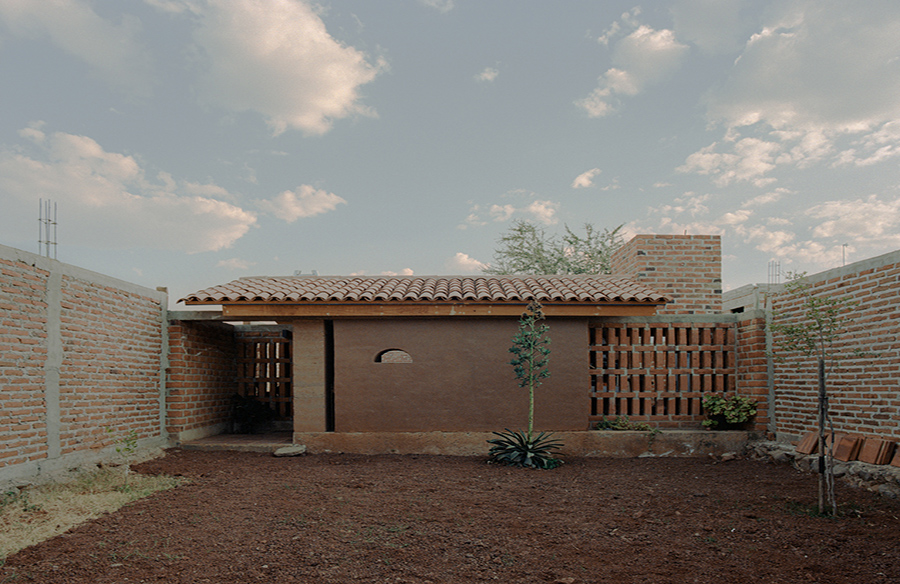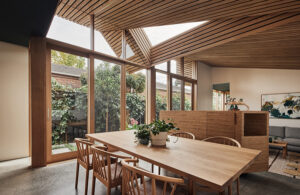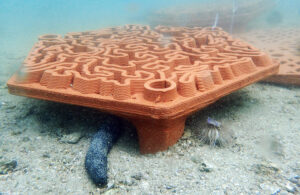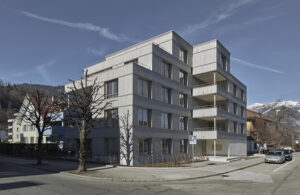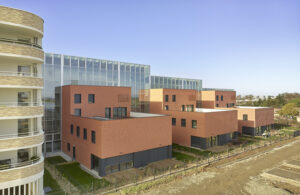Tequila, Jalisco, known for its tequila industry and vibrant tourism, faces challenges of disorderly urban growth and high energy consumption. The Agave House, designed by MORO Taller de arquitectura and Taller Omar Almaguer, seeks to address these issues while embracing the town’s identity and cultural heritage.
Utilizing Local Materials
The proposal for Agave House revolves around incorporating materials sourced from the tequila industry into various construction elements, including walls, finishes, furniture, and lighting. By utilizing these materials, the design not only pays homage to Mexico’s cultural heritage but also promotes sustainable practices by reducing the reliance on industrialized materials.
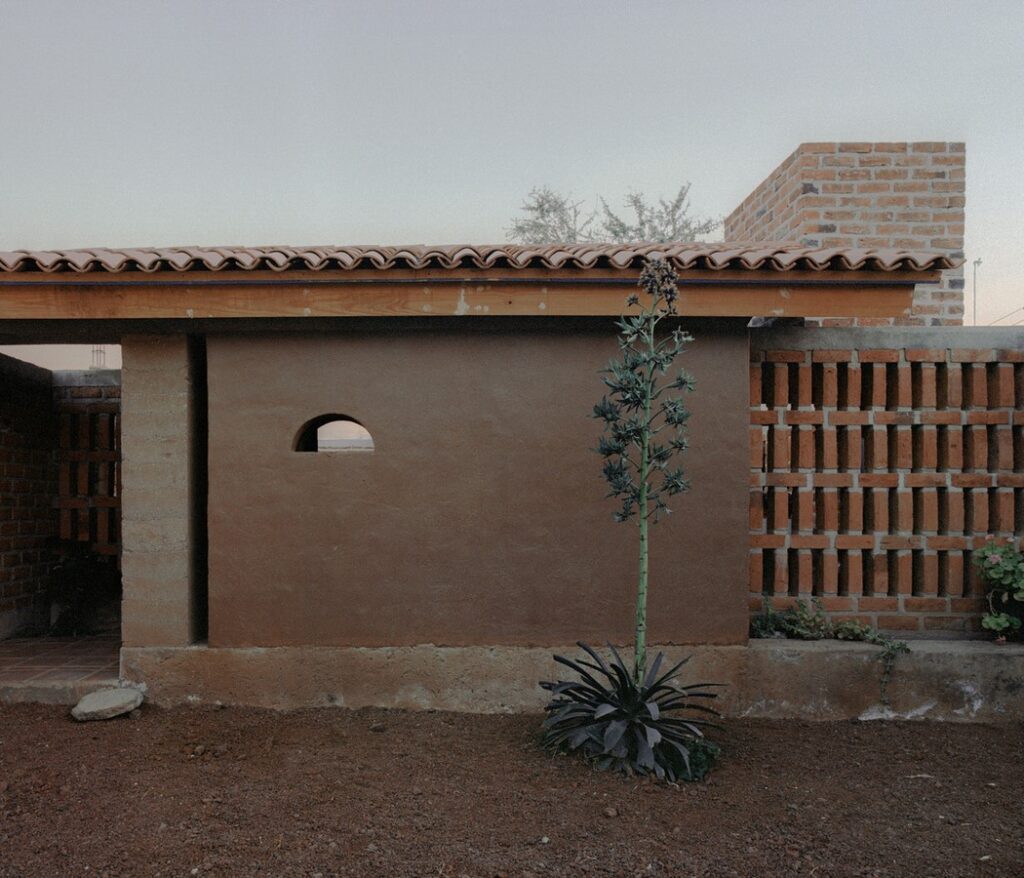
Bioclimatic Design
The design of Agave House is deeply rooted in its context, considering factors such as local climate, topography, and solar orientation. Bioclimatic criteria are integrated into the architecture to maximize natural ventilation, lighting, and comfort. The incorporation of sloping roofs, tiles, and thoughtful orientation reflects a harmonious relationship with the environment.
Community Engagement and Education
Throughout the construction process, Agave House served as a platform for engaging with the local community, students, and enthusiasts. By showcasing the use of local materials and construction systems, the project facilitated knowledge exchange and training opportunities, contributing to the expansion of constructive practices within the region.
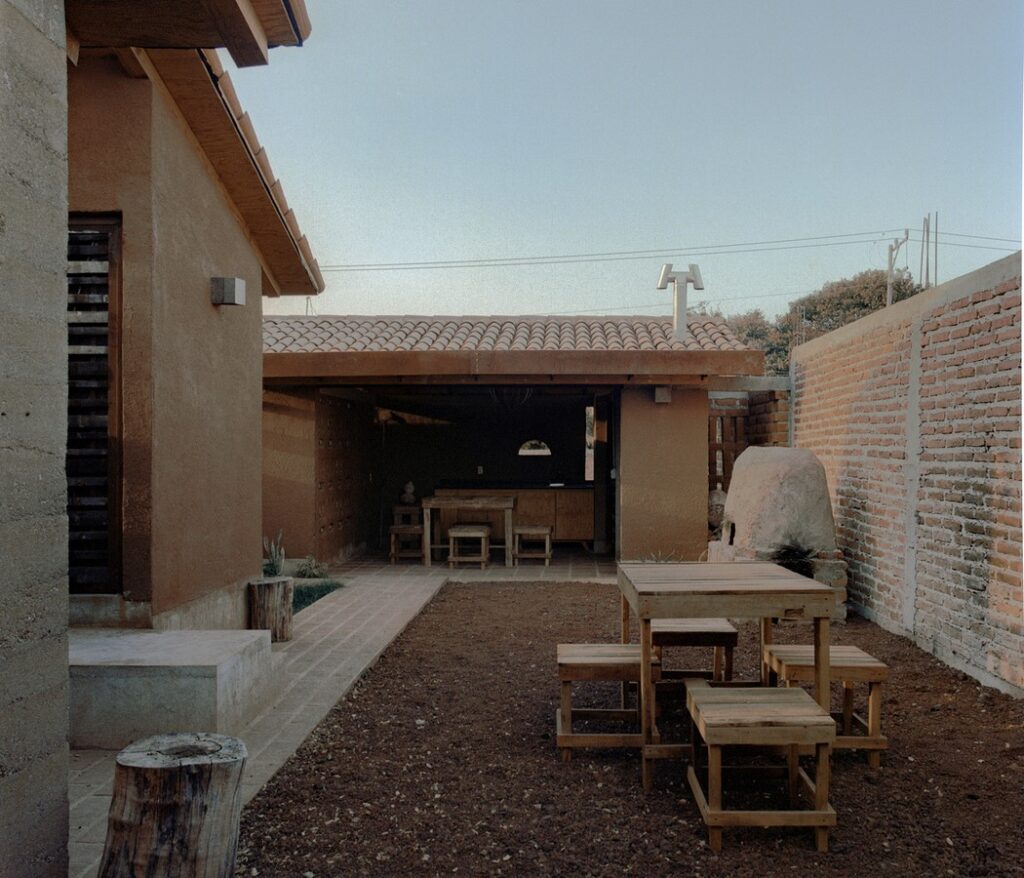
Eco-Technologies
Agave House features various eco-technologies aimed at reducing environmental impact and promoting sustainability:
- Dry Toilet: This waterless toilet system minimizes water usage, pollution, and waste generation, while also producing human compost.
- Wood Stove and Oven: Utilizing firewood as a renewable resource helps conserve natural gas and reduces carbon emissions.
- Rainwater Collection: The house incorporates a rainwater collection system, including a water filter and storage cistern, to reduce reliance on external water sources.
- Electric Boiler: By utilizing an electric boiler, Agave House can generate hot water without burning hydrocarbons, contributing to cleaner energy usage.
Conclusion
Agave House stands as a testament to the integration of sustainability, cultural identity, and community engagement in architectural design. By embracing local materials, bioclimatic principles, and eco-friendly technologies, the project not only reflects the spirit of Tequila but also serves as a model for sustainable construction practices in the region.

